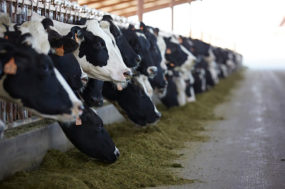There are many cases where farmland has been transferred through generations and has not been farmed for many years.
It is important to realize that a sale of such real estate may result in a capital gain that could be offset by one’s capital gains deduction, even if the person selling the property never farmed it or has ceased farming it.
Beginning in 2014, each individual has a lifetime capital gains exemption of $800,000, which can be applied to gains resulting from the disposition of qualified farm property, qualified fishing property or qualified small-business corporation shares.
Many factors must be reviewed to ensure that an individual is able to claim this capital gains exemption and that the land itself will qualify.
There are more stringent rules for farm property acquired after June 17, 1987, but those rules may not be as difficult to meet as they first appear.
Individuals who previously farmed land or whose parents, grandparents, spouse or child previously farmed land should ensure that these rules are reviewed to see if these provisions might result in some tax-free sale proceeds.
Your tax adviser will be able to apply these detailed rules to the specifics of your situation to determine if a sale of real estate or other farm assets might qualify.
Harmonized sales tax (HST) issues are also often overlooked in many farm transactions. When a farmer who is registered for the HST discontinues farming operations, he or she has to notify the Canada Revenue Agency (CRA) by letter or complete the form RC145 to cancel the HST account.
In addition, a final HST return up to the date of discontinuation must be filed and any taxes owing must be remitted.
When a farmer sells assets used in farming as an ongoing farming business, he or she may qualify for an election and not be required to pay HST on the sale.
The election is available when the farmer sells the entire farming operation or part of the farming operation, not just the individual assets.
The purchaser must acquire all or substantially all – 90 percent or more – of the assets required to carry on the farming operation.
To make the election, the purchaser and the vendor must complete form GST44, Election Concerning the Acquisition of a Business or Part of a Business.
When a farming operation is discontinued, it is more likely that the farmer would retain the farmland, farmhouse and perhaps some equipment and vehicles, and sell the remaining assets.
Where a portion of the farm assets are sold, the HST implications have to be analysed on an asset-by-asset basis. Since most supplies of agricultural products would be zero-rated, it is likely that the majority of the disposed assets such as inventory, machinery and equipment may qualify as zero-rated and therefore would not be subject to HST.
Special rules apply to assets retained upon ceasing to use them in commercial activities. The farmer will be required to self-assess HST on capital, including farmland, barn, vehicles, machinery, equipment and any unsold non-capital properties and inventory.
HST input tax credits previously claimed have to be repaid based on the fair market value of the property retained.
If there is a farmhouse on the farmland, the farmhouse would be treated as separate supply, and it is likely that the farmhouse would be exempt from HST.
The main component of the HST payable would be on farmland. Generally, HST would apply on the sale of farmland by a farmer.
There is an exemption available when a farmer sells or transfers ownership of farmland to a related individual and the individual uses the land for his or her own personal use and enjoyment. In order to qualify for the exemption, the following criteria have to be met:
- The farmland was used at any time by the farmer in a commercial activity that is the business of farming.
- The farmland was not used by the farmer in a commercial activity other than the business of farming immediately before the time ownership of the property is transferred.
This precludes the transfer of hobby farms or the transfer of land farmed by another person who leased the land.
- The recipient of the farmland is acquiring it for his own personal use and enjoyment or for that of an individual related to the recipient.
The exemption may also apply when a farmer changes the use of farmland and begins to use the land for his own personal use and enjoyment.
The farmer has to ensure that there is substantial evidence to justify that the farmland is being held for personal use and enjoyment. Merely discontinuing the farming operation does not mean the land is being used for the personal use and enjoyment of the recipient.
The above analysis provides a brief summary of income tax and HST issues that one needs to be aware of when discontinuing farming operations.
In addition to the goods and services tax/harmonized sales tax (GST/HST), the relevant provincial sales tax (PST) and Québec sales tax (QST) issues need to be addressed. Contact your tax adviser for additional information and to discuss planning opportunities. PD
Ranjan Thiruchelvam is a tax specialist for Collins Barrow SEO LLP.
—Excerpts from Collins Barrow Farm
Alert newsletter, March 2014







